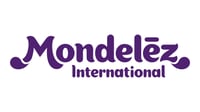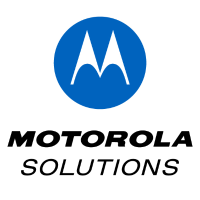Similar Jobs
About the role
The Head of I&T PMO is responsible for leading the I&T Project Management Office.
The role is a leadership role in that it drives transformation and innovation in how the PMO operates - challenge status quo and legacy processes; actively simplify bureaucracy and streamline governance for faster delivery cadence; empower project managers and teams to take calculated risks and embrace new ways of working; lead by example - get in the detail with project teams when needed to overcome blockers; have a relentless focus on delivering business value and outcomes, not just outputs.
In practical terms, this role involves managing the multi-year portfolio of I&T projects, tracking alignment with DS Smith’s Objectives and Key Results (OKRs), project ‘health’, deliverability and ability for the portfolio to flex with emerging demand and changing priorities. The Head of I&T PMO will establish and maintain project management standards, provide community, guidance and support to multiple IT Delivery leads and project managers. The Head of I&T PMO is responsible for leading the Project Management Office and ensuring effective governance, processes and standards are in place for managing the I&T project portfolio across the organisation. This role will drive project execution excellence, optimise resource utilisation, and provide transparency into project health, risks and dependencies.
The role reports to the Group Chief Technology Officer.
Key Accountabilities & Responsibilities:
PMO Leadership:
-
Lead and inspire a collaborative community of IT Delivery Partners and project managers, fostering a culture of continuous learning, knowledge sharing, and project management excellence.
-
Champion the adoption of industry best practices and drive innovation in project management methodologies across the federated IT community.
-
Develop and implement robust I&T PMO governance frameworks, policies, procedures, and standards to ensure consistency and accountability.
-
Represent I&T as a strategic partner in the DS Smith Enterprise Portfolio Management community, advocating for IT's interests and aligning with enterprise objectives.
I&T Project Portfolio Management:
-
Oversee and align the Objectives and Key Results (OKRs) for Group I&T with divisional IT priorities, ensuring seamless integration and strategic alignment.
-
Own and actively manage the IT project portfolio, ensuring alignment with business objectives, OKRs, and strategic priorities.
-
Establish data-driven project prioritisation methods based on strategic importance, resource availability, risk assessment, and value creation.
-
Proactively monitor, report, and intervene on project portfolio performance, including budget, schedule, scope, risk, and benefits realisation.
Project Governance:
-
Continuously challenge and drive improvements in the strategic alignment, health, and deliverability of the project portfolio, fostering a culture of excellence.
-
Establish and enforce robust project governance frameworks, including stage gate checks, to ensure accountability and transparency.
-
Ensure strict compliance with industry-leading project management methodologies, best practices, and standards.
-
Conduct regular project reviews, audits, and health checks to ensure adherence to standards and identify areas for improvement.
-
Develop data-driven insights into project health and performance, driving continuous improvement and informed decision-making.
Stakeholder Management:
-
Collaborate and build strategic partnerships with I&T leadership and business stakeholders to define project priorities, objectives, and success criteria.
-
Proactively communicate project status, risks, issues, and key performance indicators to stakeholders, fostering transparency and trust.
Resource Management:
-
Develop and implement effective resource allocation strategies across projects, optimising resource utilization as part of the I&T delivery lifecycle.
-
Proactively identify and address resource constraints, conflicts, and capacity challenges across the portfolio, ensuring timely mitigation and resolution.
-
Develop and maintain a comprehensive resource capacity plan at the portfolio level, enabling informed decision-making and resource optimization.
Risk Management:
-
Establish and embed robust approaches to identify, assess, and mitigate project risks, fostering a culture of proactive risk management.
-
Develop comprehensive risk management strategies and contingency plans to mitigate potential risks and ensure project success.
-
Ensure project teams are equipped with the necessary knowledge, tools, and resources to effectively manage risks at the project level.
-
Conduct regular risk assessments at the portfolio level, providing suitable mitigations and ensuring alignment with enterprise risk management practices.
Performance Measurement:
-
Define and track key performance indicators (KPIs) for project success, aligned with business objectives and industry best practices.
-
Implement comprehensive metrics to measure project performance, PMO effectiveness, and value creation for the organization.
-
Provide regular, data-driven performance reports to senior management, highlighting achievements, challenges, and opportunities for improvement.
I&T Delivery Lifecycle:
-
Act as the custodian of the I&T delivery lifecycle, managing its continuous improvement as a collaborative exercise with the community of I&T Delivery Leads, PMs, and other roles.
-
Ensure accountable ownership for all parts of the lifecycle – from idea generation, through development, testing, and deployment.
-
Publish and promote the I&T delivery lifecycle for maximum accessibility, ease of use, and adoption across the federated IT community.
-
Manage and maintain the tools, templates, and resources supporting the I&T delivery lifecycle.
-
Adapt and evolve the lifecycle to accommodate various delivery methods, including Waterfall, Innovation, Agile, and emerging methodologies.
Training and Development:
-
Establish a comprehensive training and development program for project managers, fostering a culture of continuous learning and professional growth.
-
Promote knowledge sharing, best practices, and lessons learned within the PMO and across the federated IT community.
-
Stay current with industry trends, advancements, and emerging best practices in project management, ensuring the organization remains at the forefront of innovation.
Tooling:
-
Act as IT business system lead / super user for Planview EPPM tooling
-
Provide onboarding for the growing community of Planview users within IT
About you
-
Strong decision-making and problem-solving capabilities
-
Proficiency in conflict management and negotiation
-
Deep understanding of project management methodologies (e.g., Agile, Waterfall)
-
Exposure to managing large-scale IT projects and programs
-
Ability to align IT projects with organisational goals
-
Ability to take a helicopter view of a portfolio to spot trends, opportunities and risks
-
Competence in strategic planning and execution
-
Understanding of business models, operating models, processes and financial management
-
Ability to assess and manage project risks and benefits
-
Commercial acumen – including Opex, Capex treatment
-
Excellent verbal and written communication skills to share vision, plans and governance
-
Proficiency in stakeholder engagement and management - including to senior executives, business leaders, IT leadership and delivery teams
-
Strong organisational and time management skills
-
Attention to detail and ability to gather sufficient knowledge of a large portfolio of projects
-
Familiarity with IT infrastructure and software development processes
-
Ability to leverage project management tools and software including MS Project, Planview, Kanban boards
-
Ability to understand a complex portfolio of projects that span geographies and divisions. Ability to form insights from modern data analysis of the portfolio.
Qualifications
Educational Background:
-
Bachelor’s degree in Information Technology, Computer Science, Business Administration, or a related field
-
Preferred: Advanced degree (e.g., MBA, Masters in Project Management) is often preferred
Certifications:
-
Project Management Professional (PMP) or equivalent certification
-
ITIL, PRINCE2, or other relevant certifications
Experience:
-
Extensive experience in IT project management, with a proven track record of successful project delivery
-
Experience in a leadership role within a PMO or similar environment
To fulfil our purpose of redefining packaging for a changing world, we aim to build a diverse, motivated, and engaged workforce. Our goal is to create a culture of inclusion where everyone is treated fairly, differences are valued, and everyone has an equal opportunity to succeed.
Our people come from diverse backgrounds, bring different perspectives, ideas and experiences to generate unique solutions focused on present and future sustainability challenges. We welcome all candidates to apply, even those not meeting all criteria.



